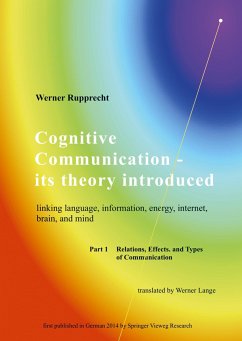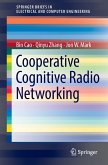The function of cognitive communication is to enable people and machines to acquire knowledge. The gain in knowledge lies in the information gained from the signals received. Machine languages and natural languages spoken by people differ in that the signals of machine languages have sharply defined meanings, while the meanings of signals of natural languages are highly fuzzy.Werner Rupprecht explains how vague meanings arise in the brains of human beings, and that, paradoxically, owing to such vagueness, people are able to gain insights that machines cannot. He explains in detail the links between information theoretical entropy, thermodynamic entropy and energy, describes the sensory organs of humans, the processing of signals in neuronal networks and machines, the development of media, especially the internet, and discusses the role of an immaterial mind.
Bitte wählen Sie Ihr Anliegen aus.
Rechnungen
Retourenschein anfordern
Bestellstatus
Storno








